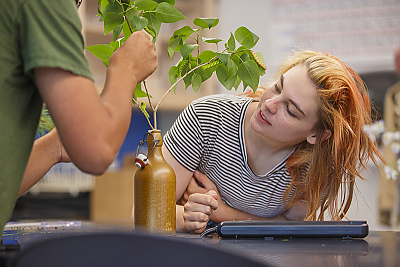The rigor of the scientific method in the context of Landmark College’s innovative teaching methods.
The Bachelor of Science in Biology degree at Landmark College includes knowledge areas related to evolution and genetics, chemistry, research, data-driven decision making, and a strong foundation in organismal and sub-organismal biology.
Students will engage in experiential opportunities to enrich professional behaviors, enhance collaboration, and develop and maintain projects.
We encourage students to critically evaluate concepts and ideas using scientific evidence, preparing them to become informed and productive members of society.
The B.S. in Biology degree is an extension of the College’s current A.S. in Biology degree.



